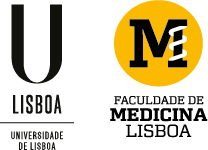I carried out my PhD. studies in Oslo at Prof. Philippe Collas lab, where I have focused in understanding how interactions between chromatin-associated and nuclear envelope (NE) proteins can affect cell cycle progression and DNA replication. During these studies, and taking advantage of a large number of biochemical and fluorescent microscope techniques, I show that disruption of chromatin/NE interactions affects NE breakdown and chromatin condensation at the beginning of mitosis and may prevent initiation of DNA replication due to degradation of Cdc6, a component of the pre-replication complex. After finishing my PhD studies, in 2004, I decided to move to a new research area, as a PosDoc in Prof. Carmo-Fonseca´s lab, where I started by being particularly interested in understanding how splicing affects transcription dynamics using a combination of live-cell imaging, chromatin immunoprecipitation and quantitative real-time PCR approaches. From these studies, I identified a novel link between spliceosome assembly and transcription termination, showing that inhibition of early spliceosome assembly leads to abortive transcription at the 3 ´end region of human genes. In the past years, and taking advantage of my already solid research experience, I started developing new methodologies capable of being applied in the management of human genetic disorders, namely familial cardiomyopathies (HCM and DCM). In particular, in our lab, I was responsible for the implementation of protocols for gene editing of mammalian cells using the CRISPR/cas9 system, a powerful tool for targeted genome engineering. So, we started by established proof-of-principle for editing the murine TNNT2 gene in both embryonic stem cells and HL-1 mouse cardiomyocytes. The TNNT2 gene that codes for sarcomeric Troponin T, is one of the most frequently mutated gene in familial cardiomyopathies, and a cluster of mutations is present in its exon8. So, here, we managed to target a therapeutic, wild type, TNNT2 cDNA (exon7-exon15) preceded by a splice acceptor site into the intron6 of TNNT2. This allowed for splicing of a wild-type coding sequence with the previous exon6, leading to expression of a wild-type TNNT2 protein and correcting any TNNT2 mutation downstream of exon6. (FCT funded project, Exploring new therapeutic approaches for Hypertrophic Cardiomyopathy, EXPL/BIMMEC/0201/2013, PI: Sandra Martins). At the moment, we are combining gene editing and human myocardium engineering for precision cardiology. Investigating the cellular and molecular pathways disrupted by mutations that cause hypertrophic familial cardiomyopathy (HCM) may provide novel insight into compensatory forms of cardiac remodelling triggered by more common diseases. We are hypothesizing that despite genetic diversity, mutations causing either HCM induce a common adaptive cellular response, with specific gene expression signatures, irrespective of the genetic defect. To address this view we intend to investigate global transcriptomic and proteomic profiles linked to disrupted sarcomerogenesis caused by HCM mutations in heart tissue engineered in vitro from iPSC-derived cardiomyocytes. To avoid background genetic differences in patient iPSCs, we are using the recently reported CRISPR-Cas9 strategy to selective introduction of isogenic cell lines harbouring well characterised HCM-causing mutations. Using single-cell transcriptomics we will resolve the inherent heterogeneity and asynchronous nature of iPSC maturation. We will further use direct RNA sequencing technologies to obtain unprecedented information on alternative splicing isoforms and different levels of transcripts. W e expect our results will contribute to the identification of novel biomarkers and potential therapeutic targets in cardiac disease.
Academic Degrees
Maria Carmo-Fonseca - IMM, University of Lisbon - Post-doc - 2004-2007 - Molecular Biology
Philippe Collas – Department of Medical Biochemistry, Faculty of Medicine, University of Oslo (UiO), Norway - Ph.D. - 2000-2003 - Cell and Molecular Biology
Philippe Collas / Nuno Neves - Department of Medical Biochemistry, Faculty of Medicine, University of Oslo (in collaboration with ULHT) - Master's - 1999-2000 - Developmental Biology
University of Aveiro - Bachelor's - 1994-1998 - Biology
Since 2024 – Assistant Visiting Professor at 30% / Course Coordinator for Eukaryotic Genetics, Faculty of Sciences, University of Lisbon (Bachelor's Degree in Biology).
Since 2018 – Assistant Professor with full-time dedication, Institute of Molecular Biology, Faculty of Medicine, University of Lisbon (Teaching in the Bachelor's Degree in Nutritional Sciences in the Molecular Biology of the Cell course).
Since 2009 – Assistant Professor with full-time dedication, Institute of Molecular Biology, Faculty of Medicine, University of Lisbon (Teaching in the first cycle of studies in the Integrated Master's Degree in Medicine in the courses Module I.I – Molecular, Cellular and Human Development Biology and Common Core V a) – Oncobiology).
2008 – Course Coordinator for Molecular Biology, ULHT (Bachelor's Degrees in Biology, Environmental Engineering, and Biotechnology).
2007-2009 – Assistant Visiting Professor at 30%, Institute of Molecular Biology, Faculty of Medicine, University of Lisbon.
2007-2008 – Post-Doctoral Fellow (IMM/BPD/17-2007), at the Cellular Biology Unit (UBCe), Institute of Molecular Medicine, within the project "Insights into novel therapeutic strategies for nuclear inclusion disease caused by polyalanine expansion". Supervisor: Professor Maria Carmo-Fonseca (FMUL/IMM).
2004-2006 – Post-Doctoral Fellow (SFRH/BPD/14908/2004), at the Cellular Biology Unit (UBCe), Institute of Molecular Medicine within the project "How pre-mRNA splicing may affect cell cycle progression". Supervisor: Professor Maria Carmo-Fonseca (FMUL/IMM).
2004-2008 – Vice-Coordinator of the Master's Degree in Developmental Biology at the Universidade Lusófona de Humanidades e Tecnologias (ULHT).
2000-2003 – PhD Student in the Department of Medical Biochemistry, Institute of Basic Medical Sciences, Faculty of Medicine, University of Oslo. PhD Fellowship (SFRH/BD/772/2000), within the project "Modulation of the cell program", funded by the Foundation for Science and Technology. Supervisor: Professor Philippe Collas.
1999 – Master's Student in the Department of Medical Biochemistry, Institute of Basic Medical Sciences, Faculty of Medicine, University of Oslo, Norway, within the project "Function of HA95, a novel nuclear protein homologous to A-kinase anchoring protein 95". Supervisor: Professor Philippe Collas (UiO) / Co-Supervisor: Professor Nuno Neves (ULHT).
1998 – Undergraduate Intern in the Animal Physiology and Neurosciences Laboratories, Department of Biology, University of Aveiro. Supervisors: Professor Maria Ana Santos and Professor Maria Paula Gonçalves.
Research Area
Natural Sciences - Biological Sciences - Molecular Biology



